Illustration: A fashion product development team reviews a digital dashboard showing real-time fabric data, sustainability scores, and virtual try-on results.
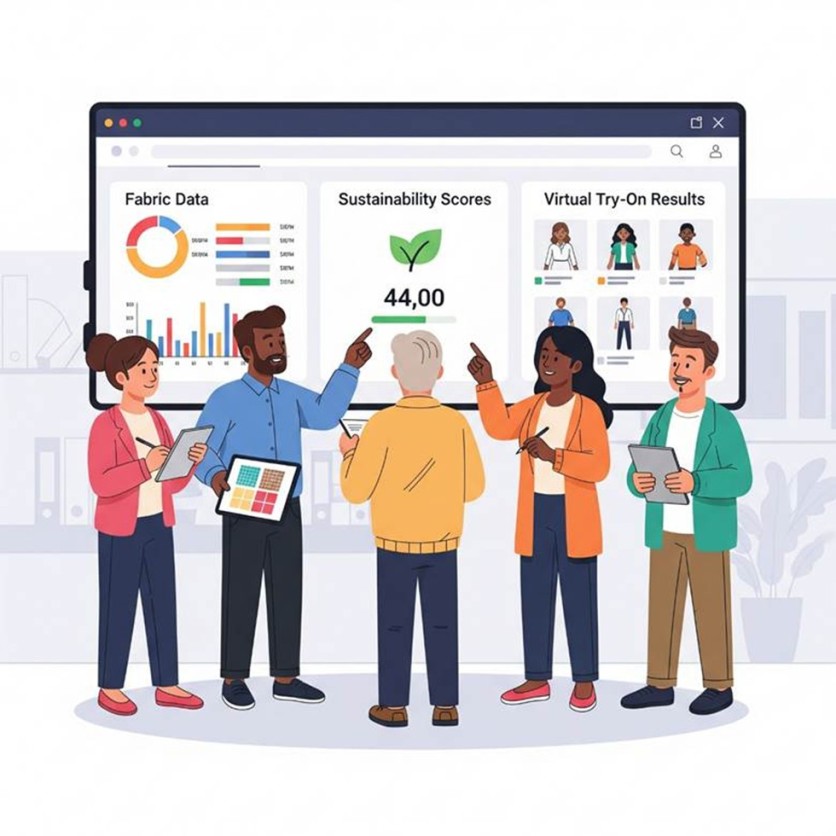
Fashion Is Transforming—And It's Not Just About Style
The global fashion industry is at a pivotal moment. The rise of e-commerce, shifting consumer values, and demand for sustainable practices have exposed cracks in traditional go-to-market models. Creativity and craftsmanship remain core—but speed, data, and agility now define who leads and who lags.
Enter SmartFabric—a fashion-forward business solution that weaves together real-time fabric insights, AI-driven recommendations, and immersive virtual experiences. More than just a digital tool, SmartFabric represents a strategic shift: from reactive production to proactive innovation, from guesswork to intelligence.
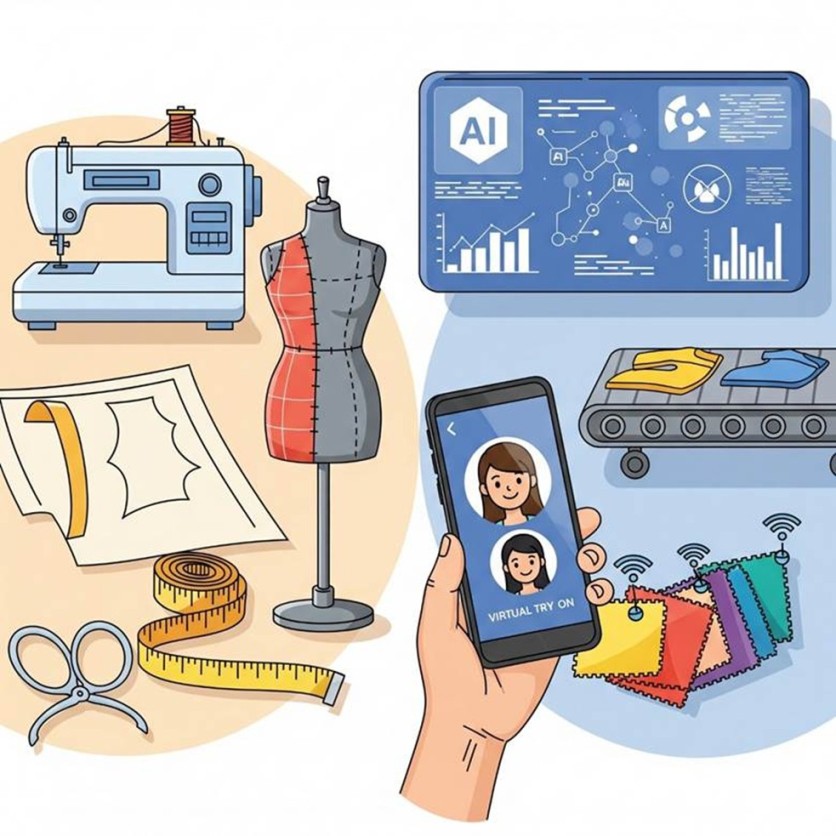
From Swatches to Strategy: What Is SmartFabric?
SmartFabric is a next-generation fashion fictitious platform that empowers brands to make better decisions earlier in the product lifecycle. It enables companies to:
- Capture fabric performance using embedded sensors for stretch, durability, and moisture-wicking.
- Use generative AI to analyze consumer behavior, product performance, and sales history.
- Offer virtual fitting experiences via smart mirrors and mobile apps.
- Track sustainability metrics in real time—like water usage and material waste—by style, season, or division.
Together, these capabilities help brands accelerate design decisions, reduce costs, improve fit accuracy, and build more sustainable collections—without compromising creativity.
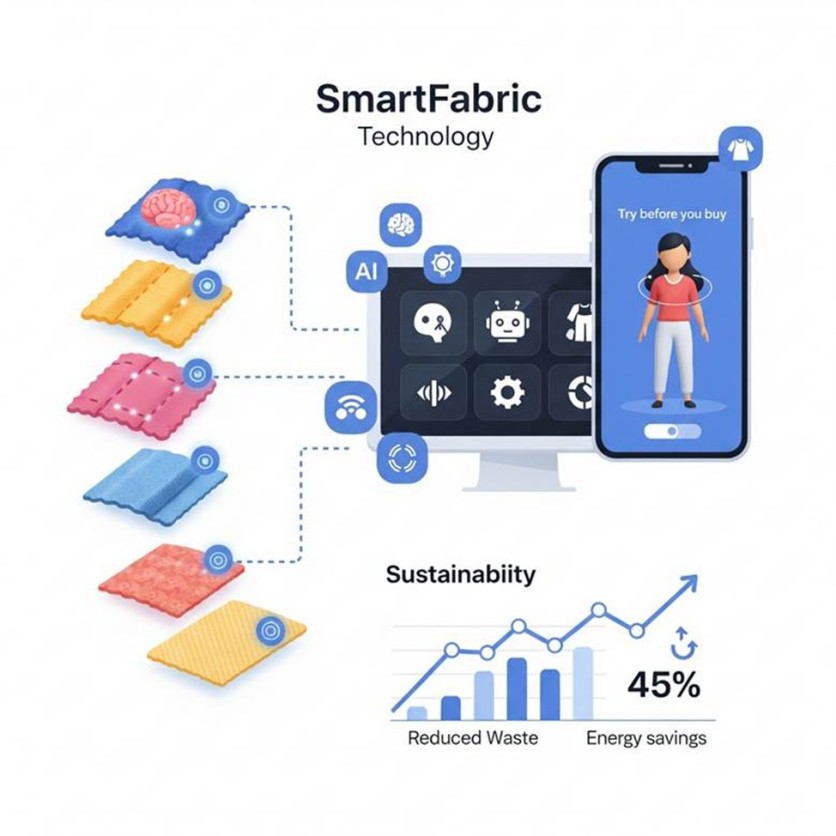
Rethinking the Go-To-Market Process
Traditional fashion calendars rely on fixed timelines, physical sampling, and siloed teams. SmartFabric disrupts that with a business model built for responsiveness.
Here's what changes:
| Old Way | SmartFabric Way |
| Manual fit testing | Virtual try-ons with real-time feedback |
| Guess-based fabric choices | Data-driven performance metrics |
| Long development cycles | Early insights from AI and consumer behavior |
| Delayed sustainability tracking | Real-time environmental impact dashboards |
| Retrospective decision-making | Predictive insights before design finalization |
This is not just digitization—it's business model innovation.
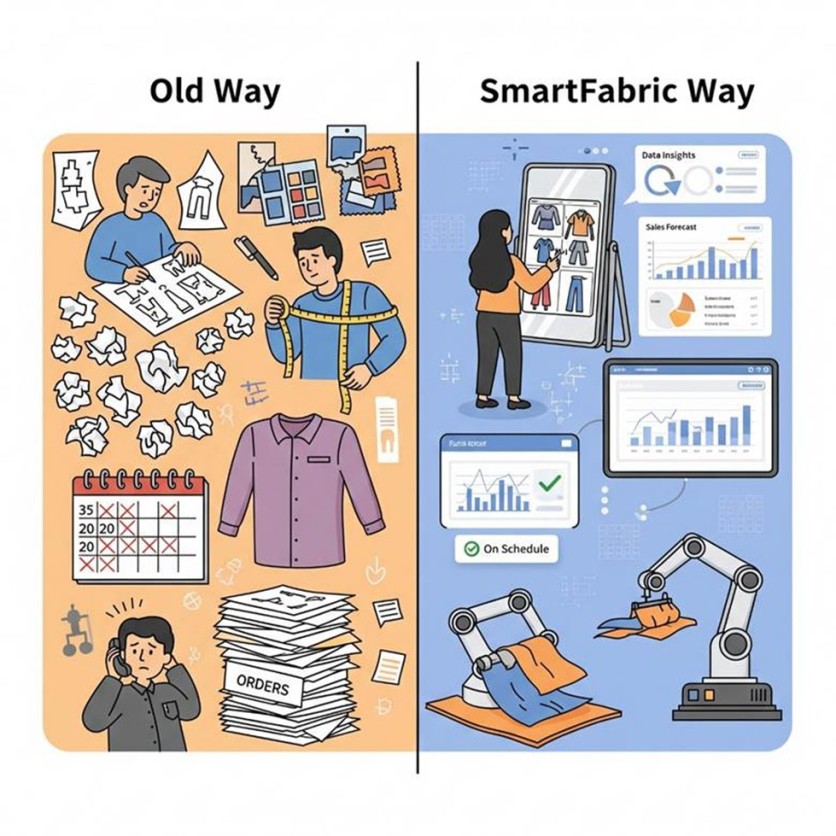
Business Use Cases: Value Across the Fashion Org
SmartFabric delivers ROI across departments, not just tech teams.
👗 Product Development
- Identify underperforming fabrics and swap them before production.
- Get recommendations for material substitutions that improve durability or stretch.
- Use virtual fittings to reduce physical sampling and shorten design cycles.
📈 Merchandising & Planning
- Track which fabrics and styles are trending in real time.
- Forecast demand based on real consumer engagement, not assumptions.
- Prioritize production resources based on adoption rates and fit preferences.
🌱 Sustainability Teams
- View dashboards for water, energy, and waste usage across the collection.
- Generate automatic reports to meet ESG targets and compliance requirements.
- Replace materials with AI-recommended sustainable alternatives.
🛒 Marketing & Sales
- Offer consumers personalized recommendations based on health goals or travel interests.
- Integrate virtual try-ons into campaigns to increase conversion and reduce returns.
This unified approach aligns every department with a smarter, faster, and more sustainable product lifecycle.
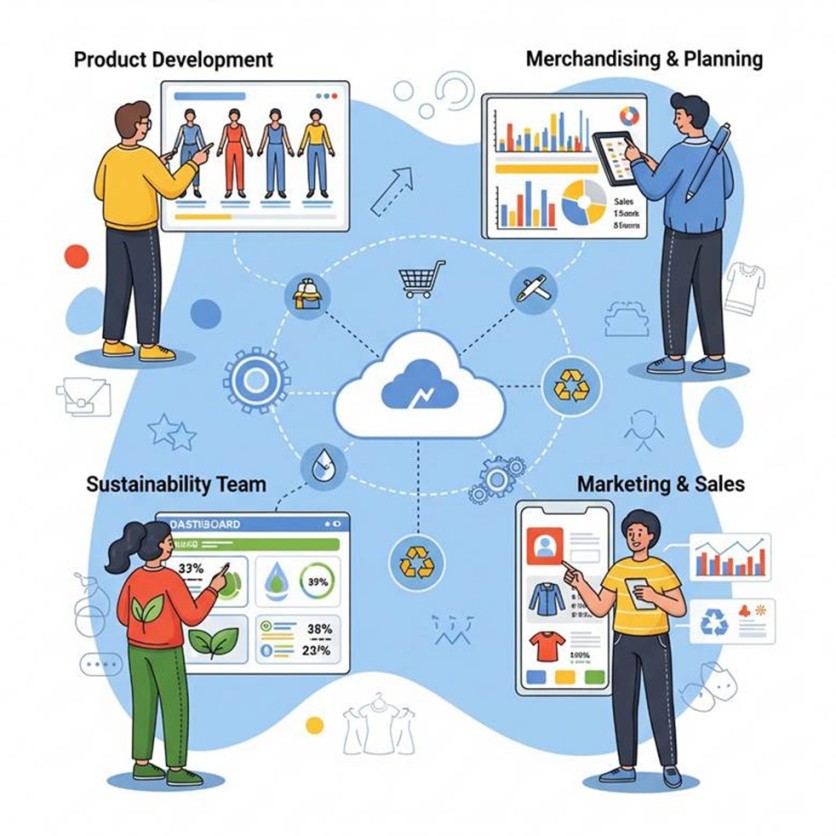
Virtual Try-Ons: From Fantasy to Fit Strategy
Consumers are demanding better personalization. SmartFabric helps brands deliver this through immersive, data-backed fitting experiences:
- Smart mirrors and AR apps let shoppers "wear" garments before they're made.
- Fitting data is captured and used to improve pattern grading, size runs, and comfort features.
- Product developers receive aggregate insights (e.g., "72% of users preferred looser waist fit in size M").
This isn't just convenience—it's a competitive advantage. Fewer returns. Better reviews. Stronger loyalty.
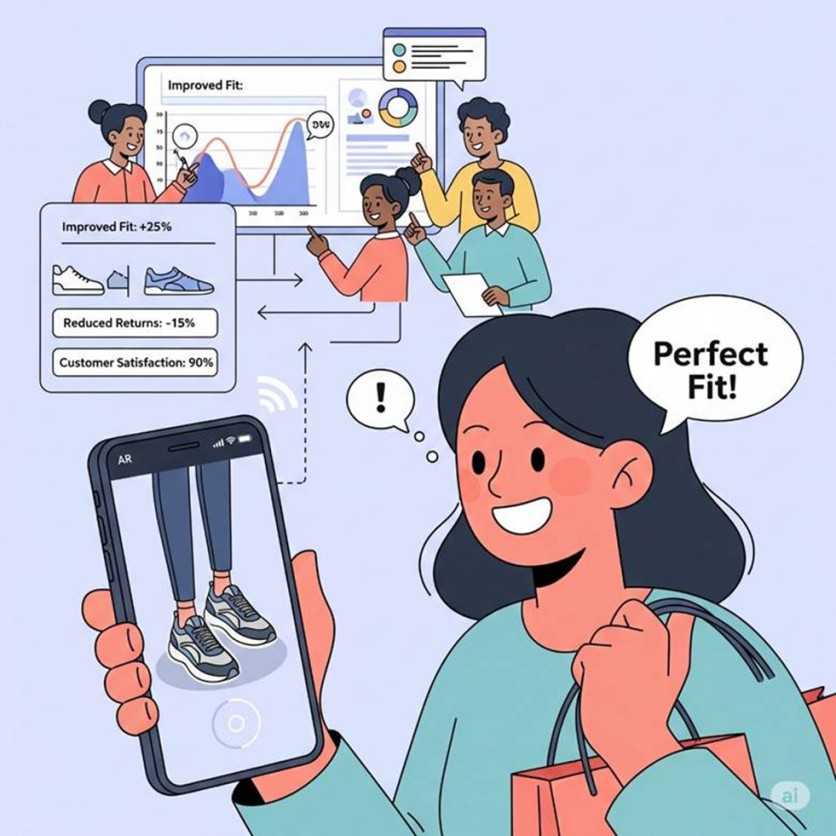
Sustainability as a Business Lever
Fashion's environmental footprint is under a microscope. SmartFabric treats sustainability as a core business metric, not an afterthought.
Key features include:
- Real-time waste tracking by material and style.
- Water and energy use monitoring linked to fabric performance.
- Automated suggestions for greener fabrics or suppliers.
These insights help brands meet regulatory expectations, achieve ESG goals, and market sustainability with integrity-all while optimizing cost and performance.
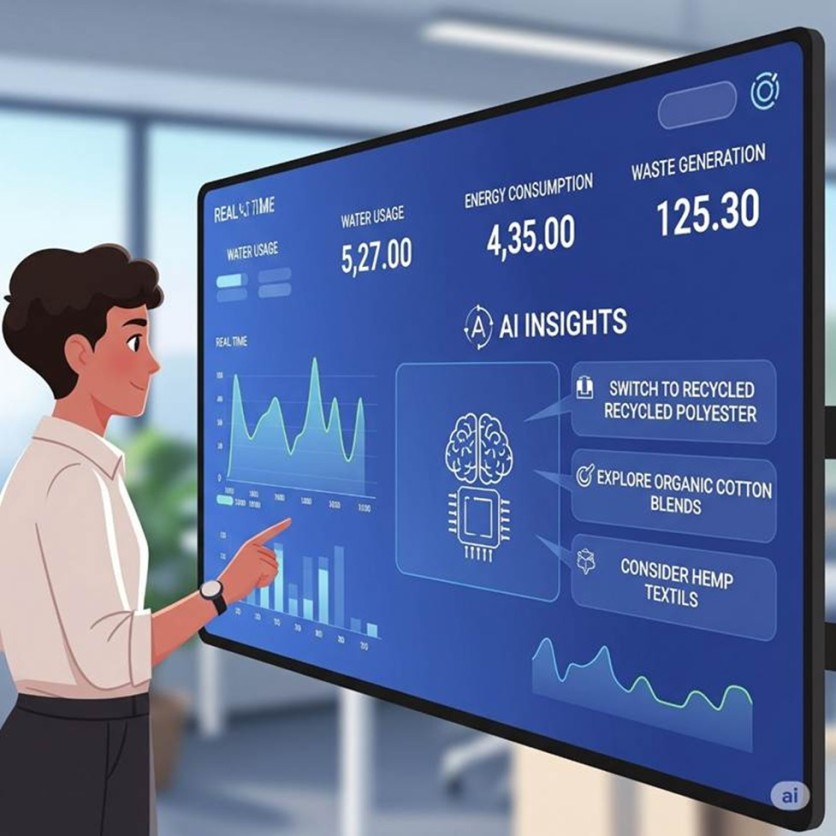
Sample Use Case: Real-Time Fabric Decision
Imagine this scenario:
- The product team is working on Spring 2025 outerwear.
- IoT-enabled fabric samples are tested for stretch, durability, and wicking.
- AI analyzes the data and flags that "FlexiFiber" offers superior performance in stretch (25.86%) and wicking (5.75%) but lower durability (245N).
- Cost analysis shows a $1.25 increase per unit, but with a 30% projected reduction in return rate.
Business Result: The brand proceeds with a limited release, markets it as a "performance innovation,"and monitors customer satisfaction to inform future rollouts.
SmartFabric in Action: How Brands Are Benefiting
Forward-thinking fashion organizations using platforms like SmartFabric report:
- ⏱ 30–40% reduction in product development timelines
- 📉 20–25% lower sampling and prototyping costs
- 🔁 Significant drop in returns due to improved fit and material selection
- 🌿 Better sustainability compliance with transparent reporting
SmartFabric enables brands to lead with insight, not instinct.
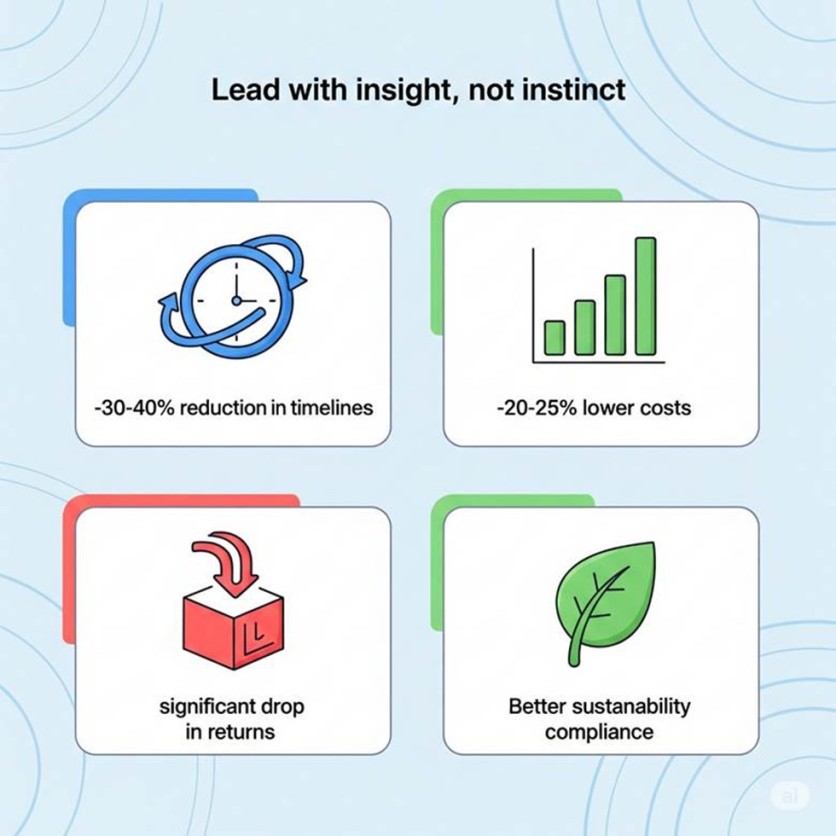
Fashion's Future Is Intelligent, Sustainable, and Personal
SmartFabric isn't just a product innovation—it's a business strategy for the next era of fashion. It empowers brands to:
- Design with purpose
- Operate with data
- Lead with sustainability
- Delight with personalization
As consumers demand more transparency, better experiences, and responsible choices, the brands that invest in platforms like SmartFabric will be the ones that thrive.
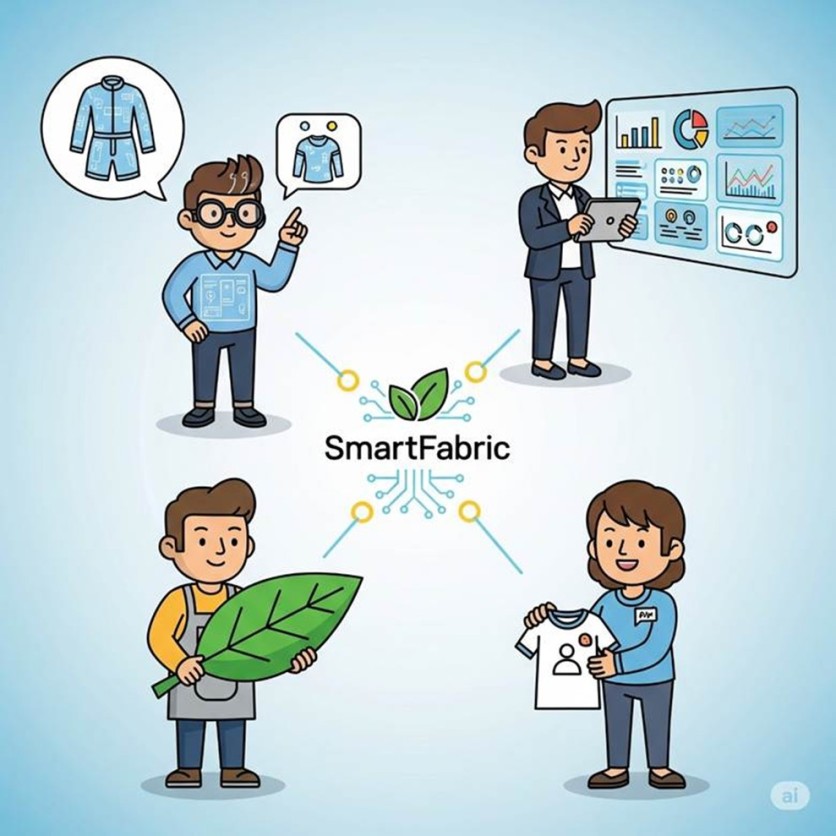
Illustration: A side-by-side of traditional development and SmartFabric—enabled workflows—from concept to consumer.
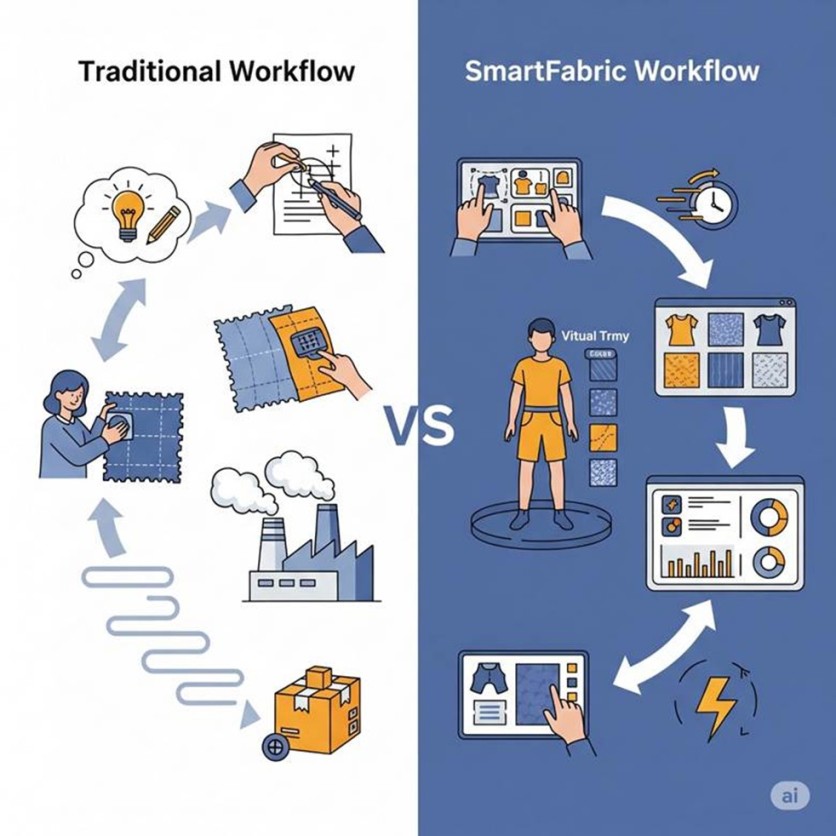
📚 References
- BRINK XR. (n.d.). BRINK Traveler. Retrieved from https://www.brinkxr.com/
- Varjo. (n.d.). Latency in Virtual Reality (VR) and Mixed Reality (XR). Retrieved from https://varjo.com/learning-hub/latency
- Style.me. (n.d.). Virtual Fitting Room. Retrieved from https://style.me/virtual-fitting/
- Pictofit. (2023). Augmented Reality Fitting Technology. Retrieved from https://pictofit.com/
- Future Now. (2022). Smart Fabric: How Australia Created Iron Man Suit with Fabrics. Retrieved from https://www.youtube.com/watch?v=Bu0qdb0u8BI
- Korpinar, G. (2023). Impact of number of clicks on user experience. Medium. Retrieved from https://medium.com/@gizemkorpinar/impact-of-click-number-on-user-experience-fab78e1f2a91
About the Author:

Sharathkumar Chandrasehkar is a Solution Architect and Senior PLM Consultant with over 18 years of IT experience, including extensive expertise in FlexPLM implementation, upgrades, integrations, and complex customizations across the Retail, Apparel, Footwear, and Consumer Goods sectors. He has delivered high-impact digital transformation initiatives using VibeIQ for leading global brands, focusing on system modernization, data migration, 3D product experiences, and cloud-native architectures.
Sharath holds a Master of Science in Computer Information Systems with a specialization in Project Management from Boston University, where his studies explored enterprise architecture, cloud integration, agile methodologies, IoT applications, and data-driven decision-making. His academic work combined practical problem-solving with emerging technologies, reinforcing his ability to bridge business needs with innovative technical solutions.
Sharath's work combines deep industry expertise with hands-on technical execution, ensuring that complex IT solutions not only meet technical requirements but also align with strategic business objectives.
ⓒ 2026 TECHTIMES.com All rights reserved. Do not reproduce without permission.




